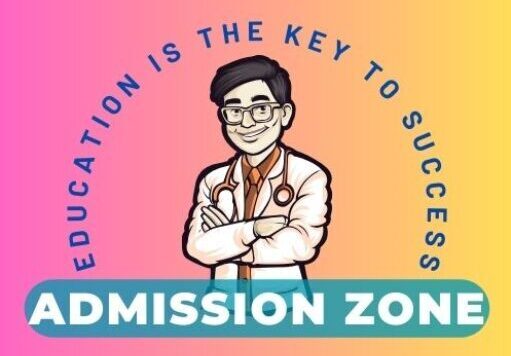PG seats in Gujarat provide good opportunities for students who want to continue their studies after graduation. Many colleges and universities in the state provide PG courses in fields like engineering, management, science, and arts. The admission process is generally based on entrance exams or merit lists. Students choose Gujarat because of its growing education system, affordable fees, and supportive learning environment. With plenty of specializations available, learners can find the right course to build their careers.
Overview of NEET Postgraduate (PG) Courses Available
NEET PG provides a good number of medical postgraduate courses for students who have completed MBBS and want to specialize further. These courses help doctors get deeper knowledge and skills in specific fields like medicine, surgery, pediatrics, and gynecology.
Students can choose from MD, MS, and diploma programs based on their interests. Each course focuses on advanced training, practical training, and patient care. NEET PG scores are used for admission to these programs in medical colleges across India.
Top Colleges and Universities Offering NEET PG Courses
1. All India Institute of Medical Sciences (AIIMS), New Delhi
AIIMS Delhi is one of the most trusted and respected medical institutions in India. It provides good PG programs, advanced training, and best research opportunities.
2. Postgraduate Institute of Medical Education and Research (PGIMER), Chandigarh
PGIMER is famous for its good academic environment and practical training. Students here get the opportunity to do a good number of clinical cases.
3. Christian Medical College (CMC), Vellore
CMC Vellore is famous for its quality teaching and patient-centered approach. The college provides multiple PG specialties and has a good reputation for medical excellence.
4. Armed Forces Medical College (AFMC), Pune
AFMC provides high-weightage medical education with disciplined training. It provides NEET PG courses for students who want to serve in the Indian Armed Forces.
5. JIPMER, Puducherry
Jawaharlal Institute of Postgraduate Medical Education & Research is famous for its experienced faculty and modern medical facilities.
6. King George’s Medical University (KGMU), Lucknow
KGMU provides a variety of PG programs and gives students strong clinical training due to its large hospital setup.
7. Banaras Hindu University (BHU), Varanasi
The Institute of Medical Sciences at BHU provides good NEET PG courses. It has expert faculty and great learning resources.
8. Maulana Azad Medical College (MAMC), New Delhi
MAMC is one of the top choices for PG studies because of its good clinical training and busy hospital environment.
9. Grant Medical College, Mumbai
Famous for its long history and good medical teaching, this college offers several PG specialties.
10. Kasturba Medical College (KMC), Manipal
KMC provides global-standard medical education with modern infrastructure and research support.
Admission Process for PG Courses in Gujarat
The admission process for PG courses in Gujarat generally begins with online registration on the official admission portal of the state or the respective university. Students must fill in their details, upload documents, and pay the required fees to complete the application.
After registration, admissions are given based on entrance exams or merit, depending on the course. Once the merit list is announced, students must confirm their seats by verifying documents and paying the admission fees within the given timeline.
Reservation and Quota Policies in NEET PG Seats in Gujarat
Reservation and quota policies in NEET PG seats in Gujarat help make sure that students from different social and economic backgrounds get fair opportunities. Categories like SC, ST, OBC, EWS, and PwD receive specific seat percentages, making medical education more inclusive.
These policies also support students from Gujarat through state quotas, giving them better chances in local colleges. By balancing merit and reservation, the system aims to create a diverse group of future doctors and improve healthcare access across the state.
Fee Structure for NEET PG Courses in Gujarat
Fees for NEET PG courses in Gujarat vary greatly depending on the type of college. Government colleges, like the major ones (e.g., B.J. Medical College), generally have the lowest tuition fees, generally around ₹90,000 per year for MD/MS courses, making them highly affordable. Also, other government-affiliated institutions, like the GMERS colleges, have higher government quota fees, sometimes around ₹3.75 lakhs per year.
The fee structure changes significantly for private/self-financed colleges, which are much more expensive. The Government Quota seats in private colleges can range from approximately ₹5 lakhs to ₹12 lakhs or more annually. If you opt for a Management Quota seat in a private college, the annual fees can be substantially higher, generally starting from ₹15 lakhs and going up to over ₹30 lakhs, depending on the college and the specialisation. Always check the official Fee Regulatory Committee (Medical) website for the latest and most accurate figures.
Recent Trends in NEET PG Seat Availability in Gujarat
Recent trends show a positive increase in NEET PG medical seat availability in Gujarat. The state has been actively working to expand its capacity, with hundreds of additional PG seats approved across both government and self-financed medical colleges for recent academic years. This effort aims to address the growing need for specialist doctors and improve the state’s medical education infrastructure.
This welcome expansion, driven by both state government initiatives and approvals from the National Medical Commission (NMC), means better opportunities for NEET PG candidates. While competition remains stiff, especially for popular clinical branches, the consistent rise in seat numbers makes it slightly easier for aspirants to secure a postgraduate position in the state.
Challenges and Opportunities in NEET PG Education in Gujarat
Gujarat’s NEET PG aspirants face stiff competition due to the mismatch between the high number of qualified MBBS graduates and limited specialist training seats. Challenges include high private college fees, causing stress and pushing many to seek alternatives or study abroad.
Also, there are major opportunities as the state is actively expanding PG seats in government colleges, wanting to improve local healthcare access.
Tips for Securing a NEET PG Seat in Gujarat
Securing a NEET PG seat in Gujarat needs careful planning and a high rank. Focus on achieving a good NEET PG score, as seats are strictly allotted based on merit. Check the official counselling website (ACPPGMEC) regularly for timelines, registration, and seat matrix updates, especially for the State Quota, which requires Gujarat domicile or an MBBS from a state college.
The choice filling process is important; rank your preferred specialties and colleges realistically, considering previous years’ cutoffs. Ensure all your documents, especially domicile and category certificates, are perfectly verified at the designated help centers to avoid disqualification. Be ready to participate in multiple counselling rounds for the best chance.

FAQ’s
Ans- Prominent Gujarat PG medical colleges include B.J. Medical College, M.P. Shah Medical College, Baroda Medical College, NHLMMC, GMC Surat, and GMERS institutions.
Ans- Gujarat provides PG specializations like MD, MS, and diplomas in Medicine, Surgery, Pediatrics, Gynecology, Orthopedics, Radiology, Psychiatry, and more.
Ans- PG seats in Gujarat are allotted based on NEET PG scores, merit lists, entrance exams, counselling, and state or reservation quotas.
Ans- Eligibility for PG admissions in Gujarat requires an MBBS degree, internship completion, NEET PG qualification, and registration with the Medical Council.
Connect with Us
Start your medical educational journey with the Admission Zone! Contact us today on 9205488482/ 7599994403 or WhatsApp us to explore a world of educational possibilities in the state and secure your admission to a brighter future.
Conclusion
NEET PG education in Gujarat provides good opportunities for medical students who want to specialise and grow in their careers. With increasing PG seats, good colleges, and a clear admission process, the state is becoming a reliable choice for postgraduate studies. Although competition and high private college fees can be challenging, students can succeed with good preparation and smart counselling choices. Gujarat’s supportive policies and expanding medical infrastructure make it a promising place for future doctors.


